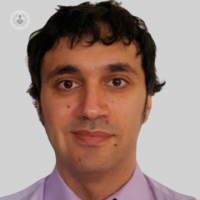Paediatric neuropsychology
Dr Daniel Ghossain - Psychology
Created on: 01-16-2014
Updated on: 08-01-2023
Edited by: Carlota Pano
What is paediatric neuropsychology?
Paediatric neuropsychology is a sub-specialty in clinical neuropsychology, which studies the relationship between the brain and behavioural patterns in children. A paediatric neuropsychologist diagnoses and treats children with learning and thinking difficulties through tests and assessments.

Which medical disorders do paediatric neuropsychologists work with?
The specialist assesses and treats children with medical disorders such as traumatic brain injury, brain tumours or epilepsy, as well as attention deficit hyperactivity disorder (ADHD), learning disabilities, intellectual and developmental disorders, and autism spectrum disorder.
What does a paediatric neuropsychologist do?
Paediatric neuropsychologists are licensed psychologists who have extra training and expertise, focusing more on how learning and behaviour are related to brain development. The specialists do not prescribe medications, as their role is to diagnose conditions.
How does a paediatric neuropsychologist diagnose learning difficulties?
The specialist will give the children many of the tests that are used in school evaluations. They look at the results in different ways or make additional tests. They focus on the child’s sensory and motor skills, attention and focus, language skills, working memory, and academic skills such as reading and maths.
What happens during an evaluation?
The child’s parents and teachers fill out questionnaires and give other information, such as medical history and school reports to the specialist. During a consultation, the parents can discuss their concerns with the neuropsychologist. The child will then be tested, which could take between four to eight hours and may be spread over a few appointments. Some neuropsychologists may observe the child at school or at home. They then share the results of their evaluation process as feedback to the parents.
What happens with the test results following an evaluation?
After the neuropsychologist has reviewed the test results, they will describe what the tests show and how they reflect on what you are seeing in your child’s learning or behaviour. The specialist will suggest types of help for your child and devise a treatment plan.
The specialist will offer therapy and may also refer to other types of professionals, such as a psychologist, speech-language expert, occupational therapist or a healthcare provider who can prescribe medication.


